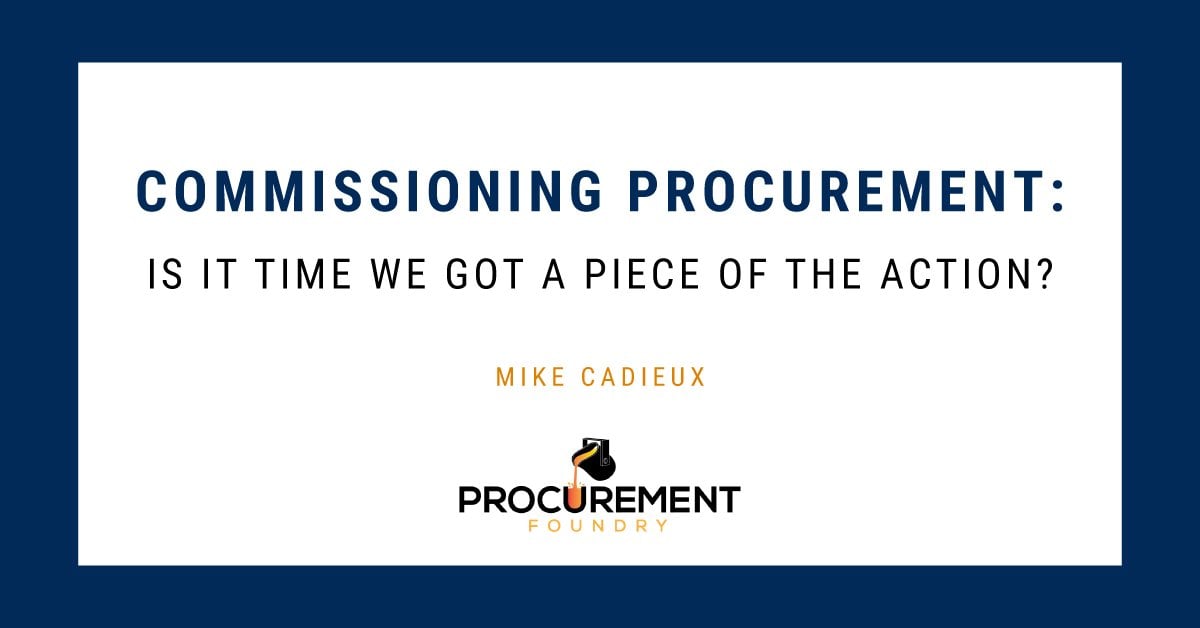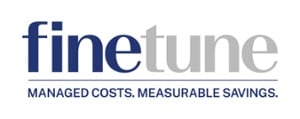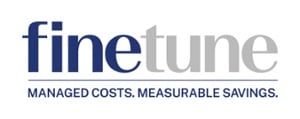Maximizing Savings Opportunities and Procurement's Strategic Value for CPOs
Saving money is not always about pinching pennies: advanced and data-driven insights enable you to identify real cost-saving opportunities, negotiate...
2 min read
![]() Michael Cadieux
:
2/27/20 6:52 AM
Michael Cadieux
:
2/27/20 6:52 AM

What’s great about getting together with fellow professionals outside the office at venues such as our recent Procurement Foundry Toronto Meetup on February 4th, is that we get to let our hair down and talk about anything and everything.
During one such gathering, the subject of corporate strategic sourcing came up. More specifically, whether it was evolving to the point that a merit-based compensation model was taking shape right in front of our eyes?
Think about it for a minute; how do you justify the fact that we, as procurement professionals, do not get a commission or bonus after saving a company $100 million?!
After all, salespeople get a commission for selling a product or service that would not exist without our efforts.
Of course, the debate about commissioning procurement is not entirely new.
While some of the discussion has had more to do with a feeling of being “underappreciated” for our efforts – hence the lament that we should be paid more for what we do – there have been a few less angst-ridden discussions.
In the latter case, the basis or calculation a company would use to compensate procurement people is a two-edged sword. For example, if I know I am going to make more money by driving the cost down, at what point does my incentive for personal gain cloud my judgement in areas such as supplier goodwill and relationships? It is not that someone would consciously descend into a total self-serving myopic mindset, but if the reward is for getting the lowest cost, it does open the door to that possibility – even if it is unintentional.
There has been much discussion regarding how to address this issue. Rather than paying a transaction commission for savings there could be a bonusing program. Under such a scheme, management might consider several factors regarding a payout.
The story about how Heinz’s procurement team worked with a supplier to “invent” the now-ubiquitous upside-down ketchup bottle immediately comes to mind. Perhaps calculating a bonus regarding the impact of that innovation from a financial, brand, and production standpoint could work?
We suspect that with the proposal of any compensation model, there will always be some concern regarding the potential for it triggering the wrong sort of behaviors.
There is however another alternative; internal outsourcing
Stop us if you have already heard this one, but what if we make the procurement function a separate, self-funding entity with its “own” P&L? A business within a business, like a fully owned subsidiary or internal outsourcing group.
Think of the clarity of purpose and the independent basis for compensation being the profitability of the enterprise. If ABC Procurement, Inc. performs well, everyone shares in the success. If it doesn’t, then adjustments will be made just like at any other company.
The benefit of it being a subsidiary of the parent company is that unlike outsourcing to a third-party, the parent company maintains controlling interest. The parent also knows that it is the only client that the procurement company has and that its “employees” are singularly well-versed in its requirements.
It’s like being an adult and living in the apartment over your Mom and Dad’s garage!
Of course, in the end, organizations could simply pay their procurement people more money starting at the CPO level. In our previous article, “Compensating success: Do CPOs get paid enough?” we report that CPO pay range is between $203,500 US and $266,545. By comparison, CFOs make between $377,796 and $555,289 annually. Based on these figures, CPO compensation has a way to go to catch-up with their C-suite counterparts as it does for all procurement people and their corresponding counterparts throughout the organization.
What do you think? Should procurement receive a commission?

Saving money is not always about pinching pennies: advanced and data-driven insights enable you to identify real cost-saving opportunities, negotiate...

The topic of our recent roundtable discussion with a dozen Procurement Foundry community members—exploring potential flaws in procurement incentive...

Every 30 days or so, I get the same alert on my phone—“Your electricity bill is available for viewing.” I take a quick look, make sure nothing seems...